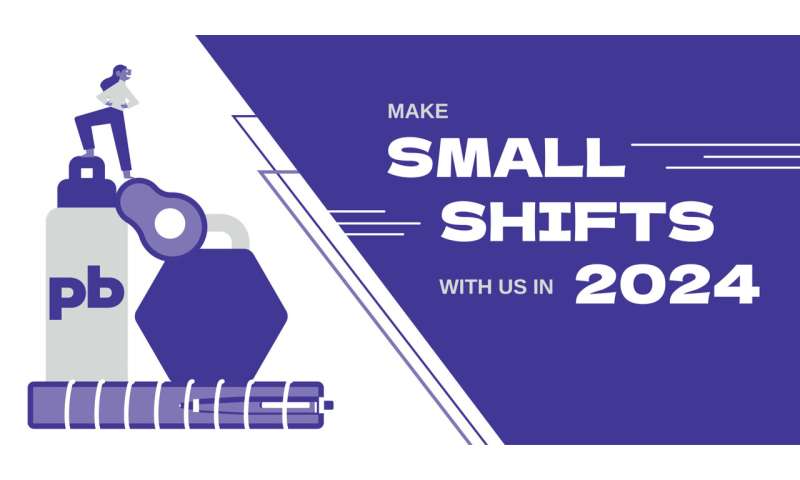Health Across the Lifespan Begins with Small Shifts

BATON ROUGE—The passion of Pennington Biomedical researchers is straightforward: prevent disease, treat disease, end disease. Through innovative research, and with the involvement of the Baton Rouge community, Pennington Biomedical is applying cutting edge technologies to improve human health. But in addressing nutrition, obesity and diabetes, many approaches do not employ state-of-the-art lab equipment. Addressing them requires small shifts.
Small shifts are something that everyone can do and can be incorporated into everyday life. Small shifts add up, and they are reinforcing, which further promotes the activity. From swapping a soft drink with water to parking further away from the front door, small changes in behavior can generate positive net effects that aren't easy to accomplish otherwise.
"In our mission to address and prevent disease, we feel that small shifts in diet, attitude, exercise and behavior can go a long way toward improving not only general health, but mental, physical and emotional health," said Dr. John Kirwan, Pennington Biomedical executive director.
Pennington Biomedical researchers are committed to addressing the triggers of chronic disease, but time and again it is important to show that the prescribed guidance is paired with the encouragement of healthy behaviors and incorporating good health habits. Researchers encourage minor adjustments because they know that major and extensive habit changes are challenging, leading to a resistance to embracing them, no matter how beneficial. Pennington Biomeidcal researchers are exploring the "whys" of people's behavior around food and around exercise; what makes people do, or not do, what they know to be good for them. This research has led us to explore good and easy-to-sustain food and exercise choices, and which ones are best suited for each age group.
While improving health is seen as a personal challenge, Pennington Biomedical is taking on the challenge at a societal level. Scientists are hard at work exploring various ways to help the community achieve this collective goal, and the year ahead presents everyone with many opportunities to make those minor adjustments—those small shifts—for a better, healthier future.
To take part in Pennington Biomedical's "Small Shifts" campaign, people are encouraged to sign up online at pbrc.edu/smallshifts. Upon signing up, participants will receive a free health journal with helpful health resources, a habit tracker, a meal planner and recipes from Pennington Biomedical's Metabolic Research Kitchen. Additionally, participants will receive monthly "Small Shifts" messages in which researchers will provide guidance through new small shifts. Participants' names will also be entered into monthly drawings for giveaways, including water bottles, t-shirts, Bluetooth earphones and other prizes. If you are participating in the "Small Shifts" campaign, use the hashtag #smallshifts to share your journey.
About the Pennington Biomedical Research Center
The Pennington Biomedical Research Center is at the forefront of medical discovery as it relates to understanding the triggers of obesity, diabetes, cardiovascular disease, cancer and dementia. Pennington Biomedical has the vision to lead the world in promoting metabolic health and eliminating metabolic disease through scientific discoveries that create solutions from cells to society. The center conducts basic, clinical, and population research, and is a campus of the LSU System.
The research enterprise at Pennington Biomedical includes over 530 employees within a network of 44 clinics and research laboratories, and 13 highly specialized core service facilities. Its scientists and physician/scientists are supported by research trainees, lab technicians, nurses, dietitians, and other support personnel. Pennington Biomedical a state-of-the-art research facility on a 222-acre campus in Baton Rouge.
For more information, see www.pbrc.edu.
Provided by Louisiana State University